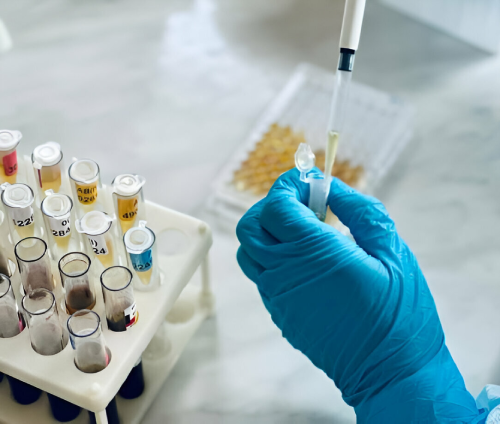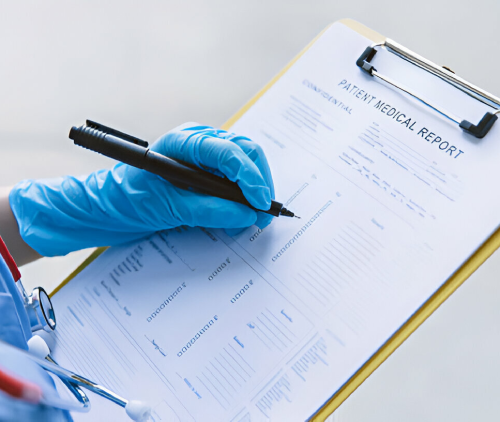Let’s Balance Your Hormones for Optimal Health
High testosterone can affect men and women in various ways. While testosterone is critical for vitality, muscle mass, and libido, levels that are too high may lead to unpleasant symptoms and potential health risks. Restoring your hormones to a balanced range can help you look and feel your best.
Key Symptoms of High Testosterone

Excessive hair growth (especially in women) or accelerated hair thinning (often in men)

Persistent acne or oily skin

Heightened irritability or aggression

Irregular menstrual cycles (in women)

Trouble sleeping or insomnia

Unexplained weight changes or increased muscle bulk without proportional effort
The Impact of High T
Elevated testosterone can trigger hormonal imbalances affecting mood, skin health, and even metabolic processes. In women, high T is associated with polycystic ovary syndrome (PCOS) and fertility challenges. In men, prolonged high T might contribute to aggressive behavior, cardiovascular strain, or liver issues (especially with synthetic usage).
Find out exactly where your hormones stand with a simple blood test

Why Consider Hormone Replacement Therapy or Rebalancing?
Hormone Replacement Therapy (HRT) is not just for low testosterone; rebalancing protocols can help bring levels down if they’re abnormally high. Proper therapy and monitoring can:
✅ Alleviate or reduce acne flare-ups
✅ Regulate mood swings and irritability
✅ Support a healthy menstrual cycle in women
✅ Decrease risks of long-term complications, including cardiovascular concerns
✅ Improve overall wellness and sense of balance
Features & Benefits

Specialized
Testing
hormone panels identify all hormonal irregularities, not just testosterone.

Personalized
Treatment
Your provider may use targeted therapies, dietary changes, or other medications to help normalize T levels.

Ongoing
Monitoring
Regular check-ups ensure hormone levels remain within a healthy range.

Whole-Body
Approach
Combining medical interventions with lifestyle strategies (exercise, nutrition, stress management) leads to better outcomes.
Expectations with Rebalancing Therapy
Medical Evaluation:
Lab tests to confirm high T levels and assess other hormones (estrogen, progesterone, etc.).
Treatment Planning:
Your healthcare provider may suggest hormone modulation therapy, dietary changes, or other medical options.
Lifestyle Adjustments:
Exercise routines, nutritional adjustments, and stress management to help regulate hormone production.
Continuous Assessment:
Periodic lab tests and consultations will fine-tune your therapy as needed.
Find out exactly where your hormones stand with a simple blood test
Steps to Balancing Your Hormones

Get a Thorough Check-Up
Beyond testosterone, check cortisol, estrogen, thyroid, and more.

Work with a Specialist
Discuss safe, medically supervised ways to bring levels into balance.

Adopt a Supportive Lifestyle
Include consistent exercise, stress reduction, and nutrient-rich meals.

Follow-Up
Track your progress and adjust your plan if symptoms persist or return.
